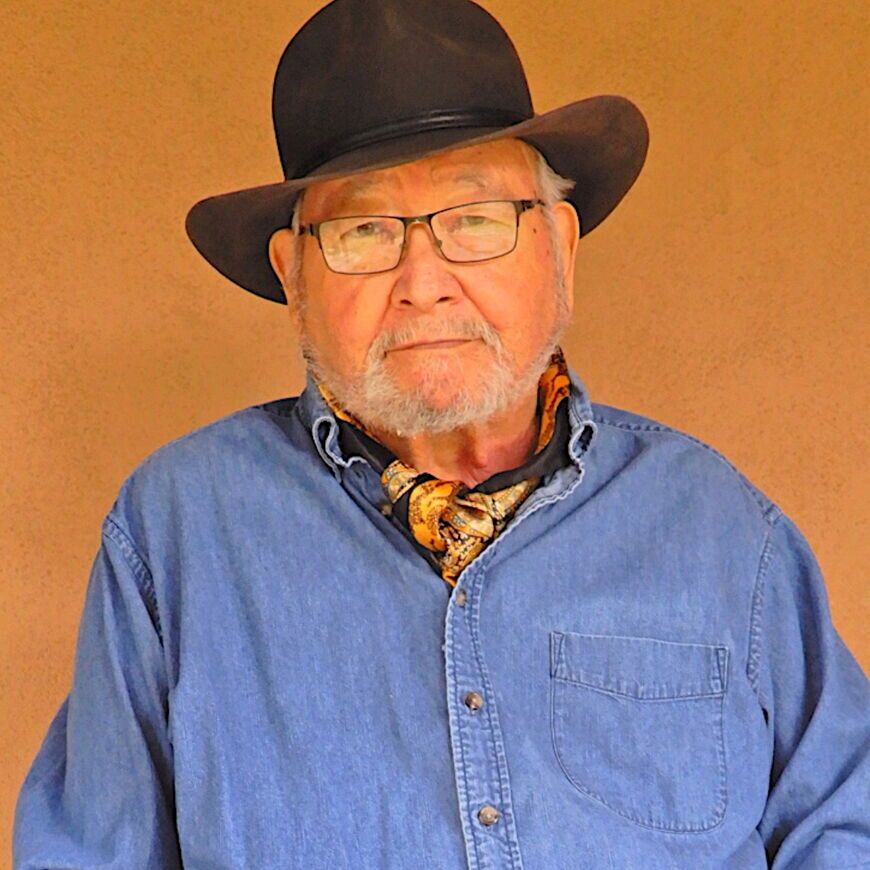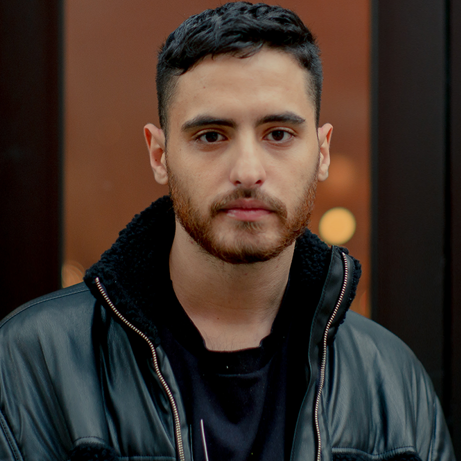N. Scott Momaday The Pulitzer Prize–winning poet and novelist N. Scott Momaday died last week at the age of eighty-nine. His debut novel House Made of Dawn, published in 1968, was one of the first novels published by a Native American writer about Native American life, and has been called the harbinger of the Native American Renaissance. Momaday considered himself primarily a poet. In his 2022 “Art of Poetry” interview (currently unpaywalled), he told the Paris Review: “Part of the process is living with a poem for some time before you know what it is. It’s best to recognize
Kwame Adjei-Brenyah. Photo: Alex M. Philip. The National Book Critics Circle has announced its 2023 award finalists. In addition to the five finalists in six categories, Becca Rothfeld won the 2023 Nona Balakian Citation for Excellence in Reviewing, Judy Blume received the Ivan Sandrof Lifetime Achievement Award, and American Library Association took home the Toni Morrison Achievement Award. The winners will be announced on March 21 in New York. Tonight at Word Up bookstore in New York, Nana Kwame Adjei-Brenyah will discuss his latest novel, Chain Gang All Stars, with Roxane Gay. Fragile Juggernaut is a new podcast about
Greil Marcus. Photo: Ida Lødemel Tvedt Unionized workers across several Conde Nast publications are walking out today in protest of “the unlawful handling of layoff negotiations and bad-faith bargaining.” Over 400 workers are holding a work stoppage and rally today, and asking readers to respect a digital picket line of GQ, Vanity Fair, Bon Appétit, Vogue, and other publications. For the latest issue of the Yale Review, Greil Marcus considers “Why I Write” and what criticism means to him. For Marcus, it started with reviewing the Rolling Stones album Let It Bleed in 1969: “Why am I reacting to
Leslie Jamison. Photo: Grace Ann Leadbeater Leslie Jamison is beginning her book tour for Splinters: Another Kind of Love Story next month at the Center for Fiction with a launch event on February 20 featuring Mary Karr. An essay adapted from the book, “The Birth of My Daughter, the Death of My Marriage,” recently appeared in the New Yorker. More author events: Amitava Kumar will launch his new novel, My Beloved Life, on February 26, at McNally Jackson’s Seaport location, in a conversation with Stay True author Hua Hsu. Wine will be served afterward. At the Cleveland Review of
Sharif Abdel Kouddous. Photo: Chion Wolf. Democracy Now! reports on “Israel’s War on Journalists,” with the Committee to Protect Journalists’ preliminary report finding at least eighty-three journalists killed so far in the Isreal-Gaza war. Amy Goodman speaks with CPJ’s Middle East and North Africa coordinator Sherif Mansour as well as Democracy Now! correspondent Sharif Abdel Kouddous. Condé Nast is laying off Pitchfork staff, including editor-in-chief Puja Patel, as it folds the venerable music site into GQ magazine. The move was widely criticized online, with New Yorker staff writer Amanda Petrusich tweeting, “Feels like a death knell for the record
Jackie Wang. Photo: © Sasha Pedro. For the Los Angeles Review of Books, Mosab Abu Toha remembers poet, professor, and activist Refaat Alareer, who was killed by an Israeli airstrike in December: “What Refaat asked of every one of us was to tell his tale. And his tale and those of others need to change this world, need to stop the genocide. It is not fiction. It is not poetry. It is his life.” In Liberties Journal, Ryan Ruby writes about Marcel Proust: “Just as everything about market society seems designed to get in the way of reading Proust,
Christina Sharpe At The Baffler, the editors reflect on the “strange and surreal year” that was 2023, and look back on some of the stories they published, on the war on Gaza, revolutionary change, conversion therapy, and more. In the new issue of The Nation, Omari Weekes reviews Christina Sharpe’s Ordinary Notes. “Who are photographs for, anyway?” Weekes asks. “More specifically, what purpose do memorials to the victims of slavery and racism—which often employ images of Black suffering—serve, and who are they for? Throughout Ordinary Notes, Sharpe directs our attention to the ways in which we choose to memorialize
Mosab Abu Toha In the New Yorker, poet Mosab Abu Toha describes fleeing his home in Gaza with his family and being detained, stripped, and beaten by Israeli forces. Toha writes of the future, “I hope that when the war ends I can go back to Gaza, to help rebuild my family home and fill it with books. That one day all Israelis can see us as their equals—as people who need to live on our own land, in safety and prosperity, and build a future.” Amy X. Wang remembers teacher and poet Louise Glück, who died in October.
Masha Gessen. Photo: © Lena Di New Yorker staff writer Masha Gessen discusses the controversy over the awarding of this year’s Hannah Arendt Prize for Political Thought with Amy Goodman at Democracy Now. Gessen received the prize in a postponed and scaled down ceremony on Saturday after the prize’s sponsor, the Heinrich Boll Foundation, withdrew its support in response to Gessen writing in the New Yorker that Gaza today is “like a Jewish ghetto in an Eastern European country occupied by Nazi Germany.” At Jewish Currents, Nora Caplan-Bricker reviews Isabella Hammad’s new novel Enter Ghost. The novel follows Sonia
Nadia Taha For The Nation, Nadia Taha writes about the dangers faced by Palestinian journalists in Gaza. Taha notes that at least sixty-three journalists and media workers have been killed so far since October 7th; fifty-six have been Palestinian. Taha observes, “Local reporters in other conflicts around the world have been lifted up by the journalistic community. The journalists of Ukraine, for instance, were awarded a special Pulitzer Prize citation for their bravery in war. The very least that those of us can do now is bring that same level of solidarity, attention, and gratitude to the journalists of
Refaat Alareer Palestinian poet and professor Refaat Alareer was killed in Gaza last week by an Israeli airstrike alongside six family members. TIME has published a collection of transcribed voice notes Alareer sent them last month. In one, he talks about the extreme lack of food and water in Gaza: “I personally lost like five kilos, but I don’t care. I can eat one date for 10 or 15 hours. I’m a young man. But how would you tell a kid they can’t eat, they can’t have what they want, they can’t drink enough? I keep telling my kids,
Louise Glück. Photo © Katherine Wolkoff The Fall 2023 issue of Bookforum is out now, with essays by Justin Taylor, Audrey Wollen, Hanif Abdurraqib, Leo Robson, Jane Hu, Michael W. Clune, Blair McClendon, Laura Kipnis, and much more. Subscribe today to support what we do, and consider making a donation or gifting a subscription. Unionized workers at the Washington Post are planning to strike on Thursday to protest cuts to staff and call attention to management “refusing to pay us what we’re worth or bargain in good faith.” Contract talks have been ongoing for eighteen months. The Washington Post
Sasha Frere-Jones. Photo: Heidi DeRuiter. Tonight in New York, Ninth Street Studio will feature Aaina Amin, Jen Elias, Abou Farman, Sahar K., H. Sinno, and others reading The Gaza Monologues, a project begun in 2010 by more than thirty young people for the Palestinian theater ASHTAR. ASHTAR is asking theaters around the world to perform the monologues today. The New York event is being put on by Movement Research, Performance Space New York, Mabou Mines, and Writers Against the War on Gaza. PDFs of the monologues are available in multiple languages on the Gaza Monologues site. In an entry
Mohammed El-Kurd In this year’s Edward Said Memorial Lecture at Princeton, published in The Nation, activist and poet Mohammed El-Kurd discusses Said’s 1984 essay “Permission to Narrate,” which critiques how Western coverage of the Israeli-Lebanese War was biased toward the Israeli narrative and suppressed the Palestinian point of view. El-Kurd identifies a similar situation at hand today, with Western mainstream media creating a false dichotomy in which Palestinians “are either victims or terrorists” and only deemed sympathetic if they are “perfect victims.” Countering this, El-Kurd writes: “We are human not just because we cry when we lose our mothers,
At AnOther magazine, an interview with Jackie Wang, whose new book Alien Daughters Walk Into the Sun was just published by Semiotext(e). Wang says of her process, “Usually, I’m just obsessively collecting quotes, writings, fragments, meditations, and not even thinking that it’s for anything. It’s almost like I have to go behind my back to get writing out.” Wang will appear in conversation with Janice Lee at Powell’s Books in Portland on December 8th.
Mosab Abu Toha. Photo: City Lights Mosab Abu Toha, a Palestinian poet from Gaza and winner of the American Book Award, was detained and reportedly beaten by the IDF after being stopped with his family at a military checkpoint on Sunday while trying to cross the border into Egypt. He has since been released in Gaza. Diana Buttu, a former PLO spokesperson and family friend of Abu Toha’s, has said that he is now with his family, and told the New York Times that “he was likely freed because of public pressure, including from publications like The New Yorker
Anne Boyer Anne Boyer—the author of the poetry collection Garments Against Women, the essay collection A Handbook of Disappointed Fate, and the nonfiction book The Undying—has resigned from her position as poetry editor at the New York Times Magazine, stating: “The Israeli state’s U.S.-backed war against the people of Gaza is not a war for anyone.” She also writes: “I can’t write about poetry amid the ‘reasonable’ tones of those who aim to acclimatize us to this unreasonable suffering. No more ghoulish euphemisms. No more verbally sanitized hellscapes. No more warmongering lies.” The winners of the 2023 National Book
Lexi Freiman The National Book Awards are tonight at 8 pm Eastern time. The event, hosted by LeVar Burton, will be streamed live on YouTube and Facebook. Ahead of the event, two sponsors have withdrawn their participation after learning that some of the awardees would likely address the war in Gaza. The National Book Foundation released a statement: “Political statements, if made, are by no means unprecedented in the history of the National Book Awards, or indeed any awards ceremony. We are working with the venue to ensure a safe environment for all our guests. We of course hope
Jazmine Hughes and Jamie Lauren Keiles on Democracy Now!, November 14, 2023 Former New York Times Magazine staff writer Jazmine Hughes and contributing writer Jamie Lauren Keiles speak with Democracy Now! in their first broadcast interview since resigning from the publication after signing an open letter published by Writers Against the War on Gaza. n+1 has published a collection of voice memos from Gazans, transcribed and translated by a group of volunteers in New York City and Chicago. “I’m six wars old,” said Sahar Kalloub on October 22. On October 13, 10-year-old Salma Alghalayini said: “It’s so hard, but
Prudence Peiffer. Photo: Charles Fulford. In The Nation, a remembrance of activist and lawyer Ady Barkan, who died of ALS last week at the age of thirty-nine. As Sarah Johnson and Brad Lander write, Barkan did not let his diagnosis slow down his activism: “He recognized that his own story, his failing voice, his dying body had become powerful tools for change that he could add to his organizing toolkit. As he lost the ability to move, his organizing dexterity only grew.” For The Guardian, Moira Donegan writes about the new Speaker of the House, Mike Johnson, and how



















